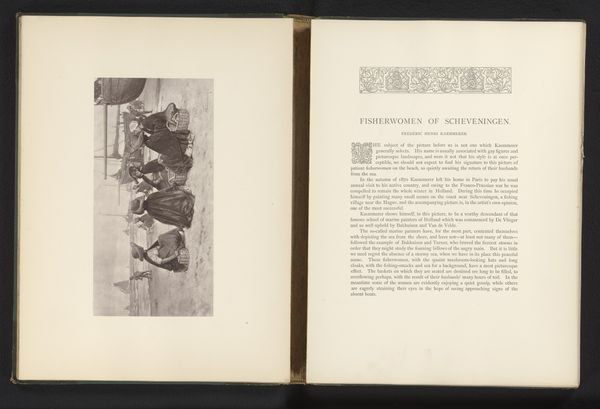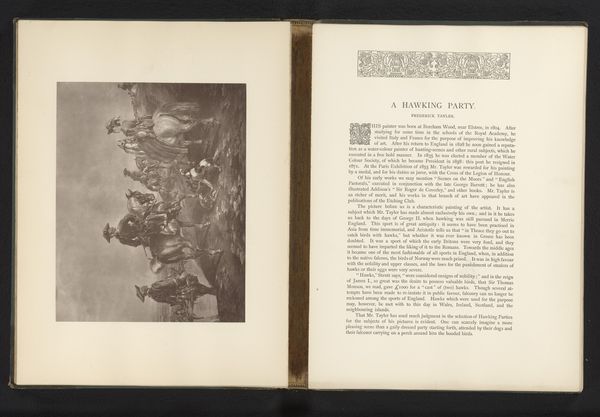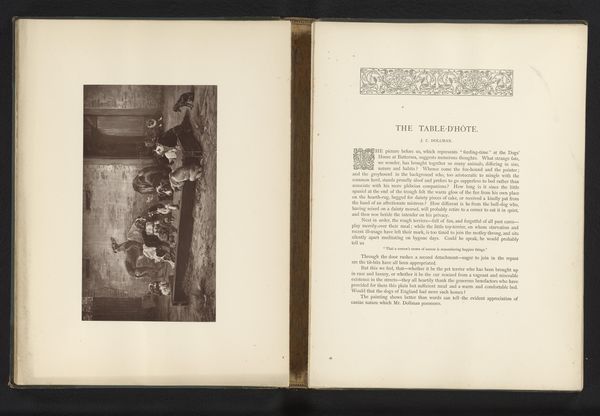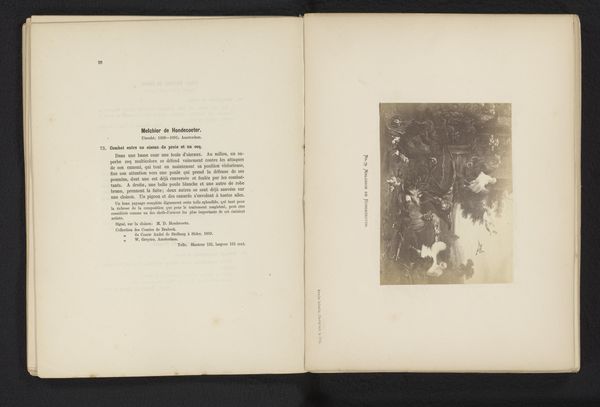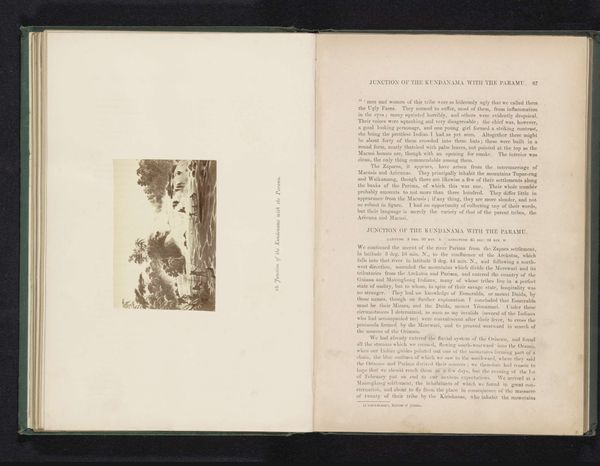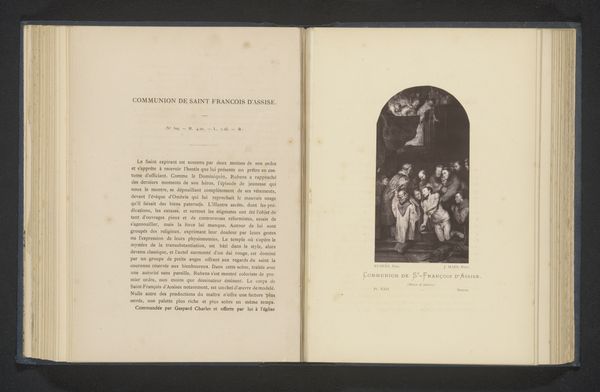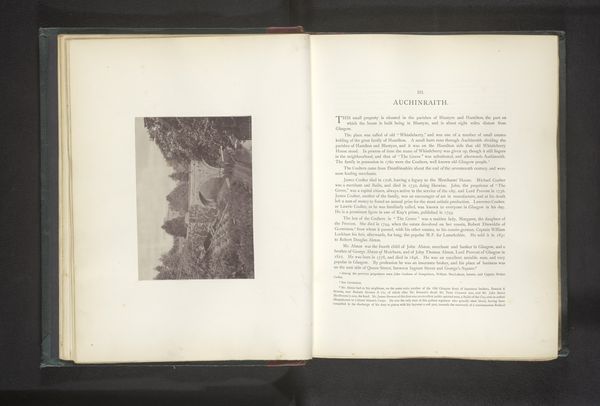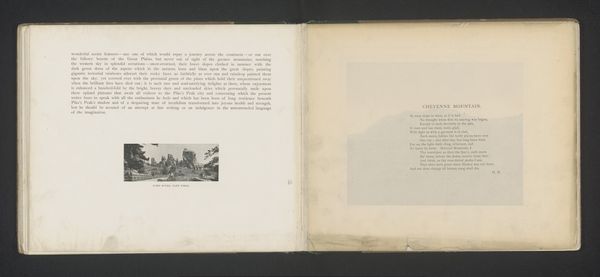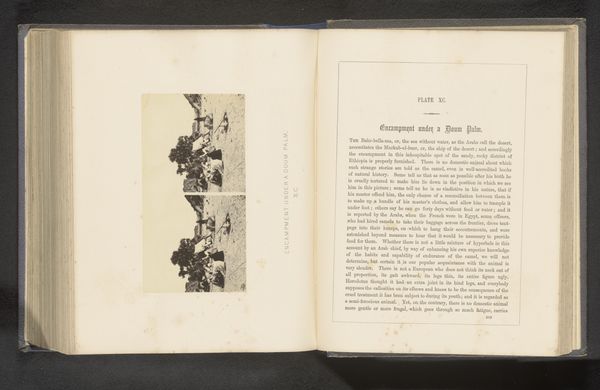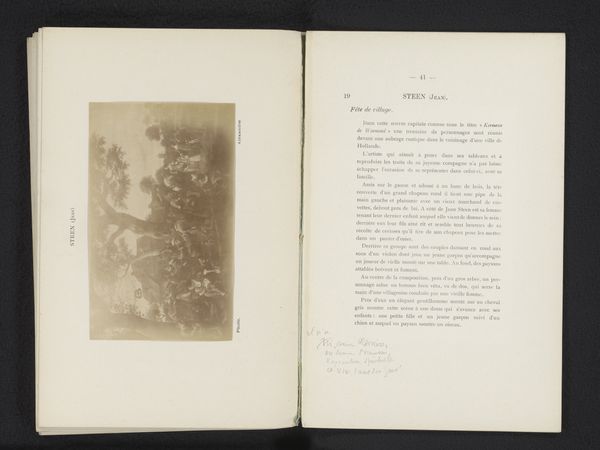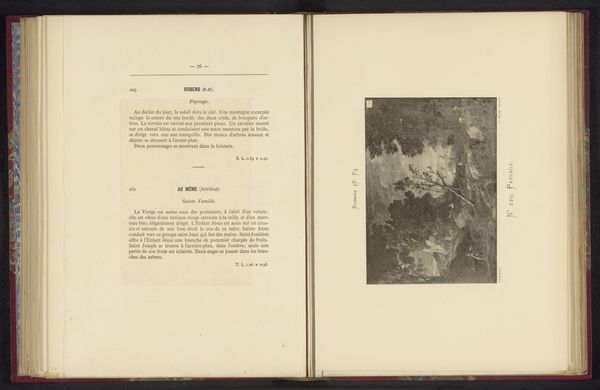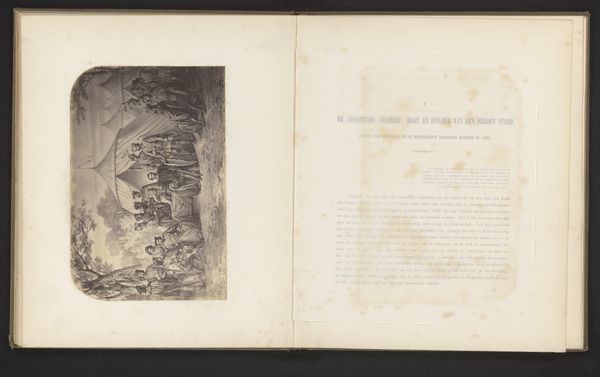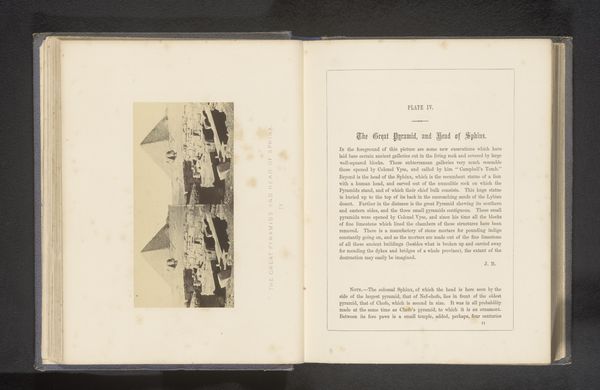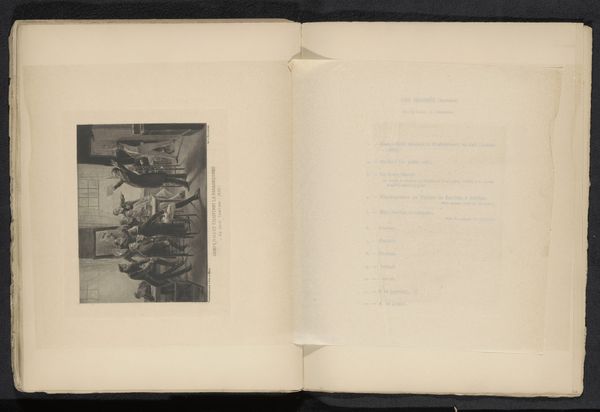
Reproductie van een schilderij van visservrouwen op het strand te Cancale door Eugène Feyen before 1879
0:00
0:00
print, photography, albumen-print
# print
#
landscape
#
photography
#
genre-painting
#
albumen-print
#
realism
Dimensions: height 141 mm, width 250 mm
Copyright: Rijks Museum: Open Domain
Editor: This is a reproduction of a painting called "Fisherwomen of Cancale" by Eugène Feyen, created before 1879. It seems to be a print made from an albumen photograph. The landscape setting is so gray and indistinct, almost blurring the figures together... I wonder, what exactly do you see in this piece? Curator: I see a depiction of labor and community, certainly, but one framed within a specific socio-historical context. Consider the title: "Fisherwomen." The artist highlights their gender, their roles. How might this focus challenge or reinforce prevailing assumptions about women's work in 19th-century France? Editor: I guess I hadn't thought about it that way. Were women not usually depicted in their working lives? Curator: Often, representations of working-class women were tinged with sentimentality or were completely absent. Feyen seems interested in showing them as a collective, embedded in the physical reality of their labor. Think about Realism as a movement; it wanted to show life as it *was*, without idealizing. Do you see any signs of idealization here? Editor: Not really. They're all bundled up against the elements, carrying what looks like heavy equipment. There's nothing glamorous about it. So, you think Feyen was making a statement by depicting women working in a realistic, almost documentary way? Curator: Potentially. We need to ask: What were the political currents concerning gender and class at this time? Was Feyen advocating for women's rights or simply observing a social reality? Or something in between? Thinking through those issues can lead to really insightful discussions. Editor: That's a really interesting way to look at it. I'll definitely remember to think about the broader context next time. Curator: Exactly! It transforms the work, doesn't it? From a simple genre scene into something with complex implications.
Comments
No comments
Be the first to comment and join the conversation on the ultimate creative platform.
